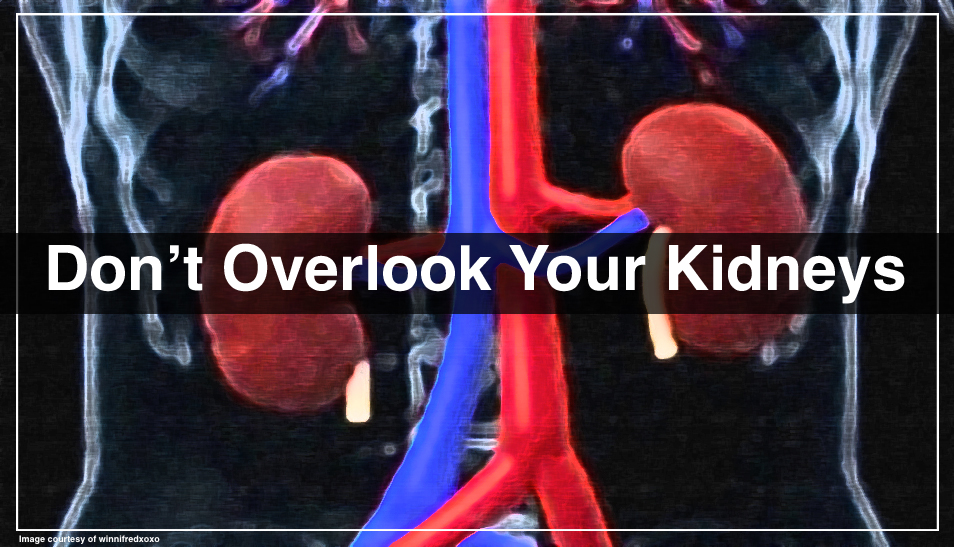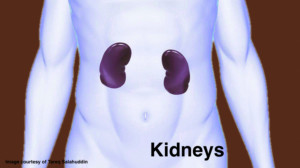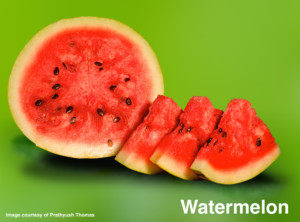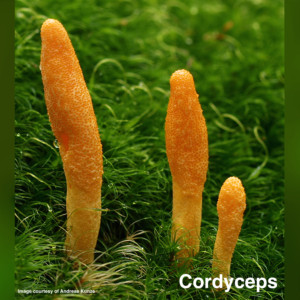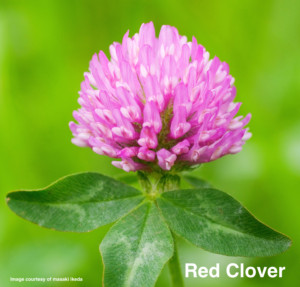Don’t Overlook Your Kidneys
by Mark J Kaylor
When was the last time you gave any thought to your kidneys or to their functioning? For the majority of us that would probably be… well, never. This is why I call our kidneys the forgotten organ. Once thought of as being the seat of our conscience and reflection, the kidneys are fundamentally essential for our health and survival. Did you know that your kidneys are at work every second of every day? Your kidneys primary job is to filter the wastes and toxins from the blood, then to excrete it in the urine. The “cleaned” blood is then put back into circulation. Your kidneys filter approximately 200 quarts of blood daily. Any excessive filtration burden can tax or strain the kidneys over time, and, if not operating at effective levels, there will be an increase in circulating toxins throughout the body.
It is also surprising that we are not more aware of our kidneys considering that 26 million or more Americans are suffering from kidney disease. And, kidney related disorders are on the rise in both young and old alike. According to the Centers for Disease Control it is one of the top 10 causes of death. From the year 1990 to the beginning of this century kidney transplants rose approximately 50%. Even the very serious and life-threatening end-stage kidney disease is growing at a rate of roughly 4 to 8% a year. And yet we hear so little about our precious and life supporting kidneys. I actually can’t remember the last article I read about kidney health or disease in any health magazine or newsletter, be it conventional or alternative.
The Simple Approach
A problem with kidney diseases is that they tend to be silent even while the disease or imbalance is worsening. Most of our body parts tend to let us know when something is wrong or out of balance by exhibiting any number of symptoms, pain, or discomfort. Not so with our kidneys. Up to 80% of kidney function can be lost before one finally gets “notice” of the problem. The three primary causes of kidney disease are on the rise as well; diabetes, hypertension, and obesity. This may account for at least some of the increasing rates of kidney disease.
As a holistic practitioner of over 3 decades I have learned that frequently the simplest approaches can often be the best starting point for both prevention and treatment. Because kidney health is so integrated into overall health the simple truth is that if you want healthy kidneys create a healthy you. Keeping yourself at a healthy blood pressure, body weight, and blood sugar levels along with staying properly hydrated can go a long way to keeping your kidneys healthy and optimally functioning.
The Tonic Approach
Something else I have learned over the last several decades helping people on their healing path, that is, a very strong preference for a tonic approach that focuses on prevention, restoration, and strengthening. We can do this through dietary adjustments and especially with balancing tonic herbs. Any discussion of a healthy kidney diet has to start with water. Making sure you drink enough water to keep things flushed and flowing is absolutely necessary to preventing any kidney toxicity and to support the removal of various toxins. Several foods bear special mention when it comes to supporting our kidney; including cranberries, watermelon (especially watermelon juice that includes the inner rind and seeds), dandelions, parsley, and carrot tops.
By far my number one remedy for kidney health, prevention, functionality, and even therapeutic applications is Cordyceps, whose use dates back thousands of years and was considered the “Guardian of the Kidneys”. In traditional Chinese Medicine this medicinal mushroom is said to strengthen the kidneys and promote overall energy and vitality, which the Chinese thought the kidneys to be the source of. Cordyceps exhibits a wide array of kidney supporting benefits, including: activating and building the blood, preventing acute and chronic kidney inflammation, reducing blood nitrogen and creatinine levels, protecting against drug induced damage, normalizing kidney function, significantly reducing urinary protein, preventing damage caused by some antibiotics, reducing acute kidney deterioration, reversing several pathological pathways associated with chronic kidney disease, and possibly slowing disease progression in those suffering from a deadly inflammatory kidney condition known as immunoglobulin nephritis. Really, enough cannot be said about the truly healing, supportive actions of Cordyceps on our kidneys health, healing, and function.
As a primary and essential cleanser/detoxifier of the body and particularly of the blood there are a number of herbs, called alteratives or blood cleansers, that can support and encourage the daily processes of detoxification.
Two of my favorites are Red Clover, Nettles and Burdock, tasty, effective, and safe to use on a long-term regular basis. The kidneys can actually become so toxic that they literally and completely rot from the inside, this is a condition called polycystic kidneys. Wheatgrass juice may be of particular use here since reducing the toxic load and eliminating kidney-poisoning toxins is key to preventing this dangerous condition. Nutritionally rich wheatgrass cleanses and builds the blood, improves immune response, and specifically targets the kidneys making it the ideal superfood for kidney health.
The Supplemental Approach
There are also numerous supplements and nutrients that may benefit overall kidney health and function, along with symptom relief and protection. Due to space limitations I will just list these nutrients, all of which are supported by scientific research and many of which have multiple angles of action. These potent kidney allies include: milk thistle, which may even regenerate damaged kidneys; CoQ10, with its protective actions; grape seed extract and ginkgo, supporting the little arteries within the kidneys and protecting against toxicities; resveratrol, improving kidney function; alpha lipoic acid, protecting the kidneys from injury related damage and diabetic complications; and carnitine, whose deficiency is associated with increased risk of kidney disease and may improve overall health and vitality of patients on dialysis.
Kidney stones are an issue that confronts about 10% of us, and 60% of those who do develop them likely to develop another stone. It is good to know then, that we have available numerous herbal healing partners for both prevention and treatment. These herbs can help reduce the size and ease elimination while working synergistically; my favorites are Corn Silk, Chanca Piedra, Gravel Root, Queen Anne’s Lace, Pellitory of the Wall (yes this is an herb), Hydrangea, Goldenrod, and Pipsissewa.
Kidneys For All
A recent report entitled The Longevity Project explored the factors that contribute to a longer life researchers found that it wasn’t feeling that we are loved that increased lifespan, rather they found it was the caring for and loving others that yielded more years. So how is this connected to kidney health? Those in need of a kidney transplant exceed well over 75,000 people a year, desperately in need of this surgery to survive. Unfortunately there are not enough kidneys donated every year to help everyone off this list. This is where your kidneys may come in. You can both help others while possibly adding years to your life by signing up as a kidney donor. You can do this at your local department of motor vehicles. Please consider it, you could save a life, or maybe even two.
Mark J. Kaylor is a passionate advocate for holistic health and natural remedies, with a focus on extending both lifespan and healthspan. As the founder of the Radiant Health Project and host of Radiant Health Podcast, Mark blends in-depth research with traditional wisdom to empower others on their journey to vibrant health. Through his writing and speaking, he shares insights into the transformative power of herbs, nutrition, and lifestyle practices.
Disclaimer: All information and results stated here is for educational and entertainment purposes only. The information mentioned here is not specific medical advice for any individual and is not intended to be used for self-diagnosis or treatment. This content should not substitute medical advice from a health professional. Always consult your health practitioner regarding any health or medical conditions.



